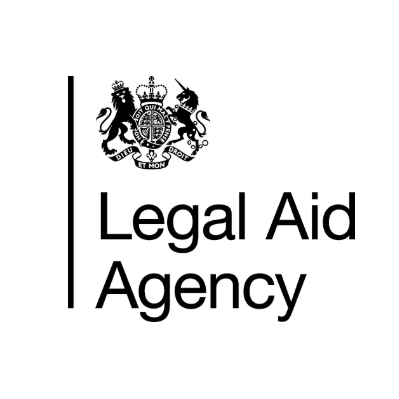The Legal Aid Agency (LAA) provide civil and criminal legal aid and advice in England and Wales to help people deal with their legal problems. The LAA is an executive agency, sponsored by the Ministry of Justice. The LAA owns the quality assurance standards known as Specialist Quality Mark (SQM). Click here for further information.
What is the SQM?
The Specialist Quality Mark (SQM) is owned by the Legal Aid Agency (LAA) and was developed to help ensure that:
- Members of the public in need of specialist advice receive a quality service; and
- The LAA can be confident when procuring legal advice services that those Legal Service Providers with whom they are contracting with have effective quality management processes in place.
The SQM is primarily an organisational standard designed to help ensure that Legal Service Providers are well run and provide excellent client care. Several proxies are applied within the SQM framework, which whilst not direct measures of quality, are fundamental to the reliable delivery of a quality service, these include Supervision, Risk Management and File Reviews.
Compliance with the SQM, or an equivalent standard (i.e., Lexcel) is a requirement for Legal Service Providers that have, or are seeking to have, a contract with the LAA.
The audit process is independently managed by Recognising Excellence who works with a team of experienced Auditors selected for their expertise in both the legal and advice sectors. In addition to managing the audit process, Recognising Excellence is the awarding body for all SQM accreditations.
Who is it for?
Any Legal Service Provider operating at the specialist level can apply for the SQM, including those receiving funding from sources such as the LAA, local authorities, charities, other public funding, and private fees. Whilst it is common for legal service providers to be authorised and regulated by the SRA, this is not a pre-requisite to apply for SQM accreditation. In addition, although SQM (or equivalent) accreditation is a requirement for providers that hold a legal aid contract with the LAA, applications are invited from all legal service providers, regardless of funding arrangements.
Benefits of SQM
In addition to satisfying the requirements of your legal aid contract (where applicable), accreditation against the SQM can bring the following benefits:
Improved Risk Management:
Effective risk management can reduce the likelihood of insurance claims being brought against the organisation. Some of the areas identified by insurers and underwriters as being the main causes of complaints against legal service providers are addressed by the SQM, which encourages:
- Increased management responsibility
- Diary control
- Conducting conflict of interest checks
- Effective supervision of staff
- Provision of comprehensive information about costs and other matters including client care and complaints.
Improved Client Care:
Where effective client care and supervision procedures are in place, the risk of complaints from clients, including those reaching the Legal Complaints Service and umbrella bodies, is greatly reduced. A large number of complaints from clients are due to misunderstandings caused by insufficient or incorrect information provided by the legal service provider.
Effective management practices and reduced costs:
Having effective management systems leads to a reduction in administrative failures, preventing wasted costs and poor service to clients.
Effective deployment of resources:
Where effective staff supervision, training, assessment, and support are provided, staff motivation and morale are improved, and each staff member is able to contribute to the running of the organisation to the best of their ability.
Increased client confidence:
Holding a recognised quality standard demonstrates a commitment to the provision of quality services.
Funder confidence:
Funders, including the Legal Aid Agency, currently require or may require in the future, certification to the SQM to ensure that the service they fund meet minimum competence standards.

